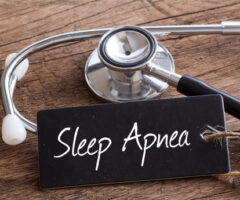Restful Nights Ahead: Exploring Sleep Apnea Procedures and Treatment
 Sleep apnea is a common sleep disorder that affects millions of people worldwide. It is characterized by interruptions in breathing during sleep, leading to poor rest, fatigue, and various health complications. However, there is good news for those suffering from sleep apnea – innovative procedures and treatments are available that can significantly improve their sleep quality and overall well-being. In this blog post, we will explore some of these procedures and treatments, providing valuable insights for individuals seeking a restful night’s sleep.
Sleep apnea is a common sleep disorder that affects millions of people worldwide. It is characterized by interruptions in breathing during sleep, leading to poor rest, fatigue, and various health complications. However, there is good news for those suffering from sleep apnea – innovative procedures and treatments are available that can significantly improve their sleep quality and overall well-being. In this blog post, we will explore some of these procedures and treatments, providing valuable insights for individuals seeking a restful night’s sleep.
1. Understanding Sleep Apnea
Before delving into the procedures and treatments, it is crucial to have a basic understanding of sleep apnea. Sleep apnea occurs when the muscles in the back of the throat fail to keep the airway open during sleep, causing breathing to repeatedly stop and start. This interruption in breathing can occur multiple times throughout the night, leading to fragmented sleep and oxygen deprivation.
2. Continuous Positive Airway Pressure (CPAP) Therapy
One of the most common and effective treatments for sleep apnea is Continuous Positive Airway Pressure (CPAP) therapy. This treatment involves wearing a mask over the nose and/or mouth while sleeping. The mask is connected to a machine that delivers a constant flow of air pressure, keeping the airway open.
CPAP therapy is highly successful in reducing the number of apnea events and improving sleep quality. However, compliance can be an issue for some individuals due to discomfort or difficulty adjusting to sleeping with a mask. In such cases, alternative procedures and treatments can be explored.
3. Bi-level Positive Airway Pressure (BiPAP) Therapy
Similar to CPAP therapy, Bi-level Positive Airway Pressure (BiPAP) therapy involves wearing a mask that delivers pressurized air. However, the key difference is that BiPAP machines deliver different pressures for inhaling and exhaling, making it more comfortable for individuals who find it difficult to exhale against the constant pressure of a CPAP machine.
BiPAP therapy is particularly beneficial for those with more severe cases of sleep apnea or individuals who require higher pressure levels. It is also suitable for individuals with specific respiratory conditions such as chronic obstructive pulmonary disease (COPD).
4. Oral Appliances
For individuals seeking a non-invasive option, oral appliances can be a viable solution. Oral appliances are custom-made devices that are worn during sleep to reposition the jaw and tongue, helping to keep the airway open.
These devices are an attractive option for individuals who find CPAP or BiPAP machines uncomfortable or inconvenient. Oral appliances are easy to use, portable, and adjustable, making them suitable for travel as well. However, they may not be as effective for severe cases of sleep apnea.
5. Surgical Interventions
In cases where all other treatments fail or are unable to adequately address the severity of sleep apnea, surgical interventions may be recommended. Surgery can help correct underlying anatomical issues that contribute to sleep apnea, such as enlarged tonsils, deviated septum, or excessive tissue in the throat.
Several surgical procedures can be performed, including uvulopalatopharyngoplasty (UPPP), maxillomandibular advancement (MMA), or tongue base reduction. These procedures aim to increase the size of the airway or remove any obstructions to improve airflow during sleep.
Conclusion
Sleep apnea is a serious sleep disorder that affects millions of individuals worldwide. Thankfully, various procedures and treatments exist to help those suffering from this condition achieve restful nights and improve their overall quality of life. From CPAP and BiPAP therapy to oral appliances and surgical interventions, there are options available to suit individuals’ needs and preferences. If you suspect you may have sleep apnea, it is advisable to consult with a healthcare professional to determine the most suitable treatment plan for you. Remember, a good night’s sleep is essential for optimum health and well-being.


